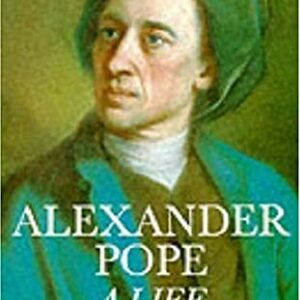
Alexander Pope: A Life
By Maynard Mack (NHC Fellow, 1984–85; 1986–87) In the first complete biography of Alexander Pope since 1900, the most eminent Pope scholar of our day brings to life the man and his times.

By Maynard Mack (NHC Fellow, 1984–85; 1986–87) In the first complete biography of Alexander Pope since 1900, the most eminent Pope scholar of our day brings to life the man and his times.
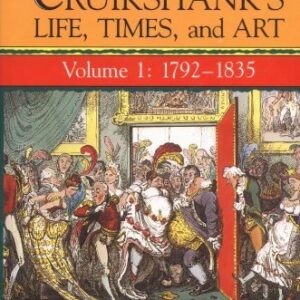
By Robert L. Patten (NHC Fellow, 1987–88) The etchings and wood-engravings of George Cruikshank (1792-1878) recorded, commented on and satirised his times to such an extent that they have frequently been used to represent the age. Cruikshank, a popular artist in the propaganda war against Napoleon, an ardent campaigner for Reform and Temperance, and the … Continued
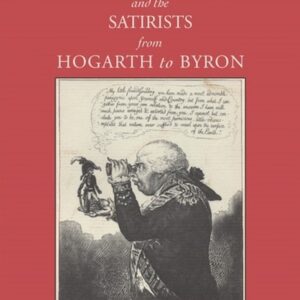
By Vincent Carretta (NHC Fellow, 1983–84) King George III inherited two legacies from the restoration of the monarchy in 1660: his crown and a tradition of regal satire. As the last British monarch who fully ruled as well as reigned and as the last king of America, George III was the target of constant satiric … Continued
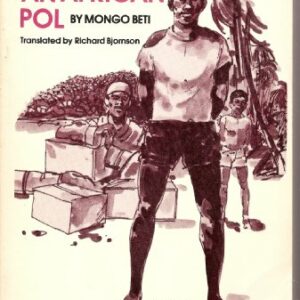
By Mongo BetiTranslated by Richard Bjornson (NHC Fellow, 1982–83) This is a sequel to Mongo Beti's Remember Ruben. It continues the story of the revolutionary partisan Mor-Zamba after the defeat of the Rubenists. The narrative argues that the mere granting of independence does not sweep away the consequences and corruptions that developed under colonialism.

By John N. King (NHC Fellow, 1997–98) Religious satire and polemic constitute an elusive presence in Paradise Lost. John N. King shows how Milton's poem takes on new meaning when understood as part of a strategy of protest against ecclesiastical formalism and clericalism. The experience of Adam and Eve before the Fall recalls many Puritan … Continued
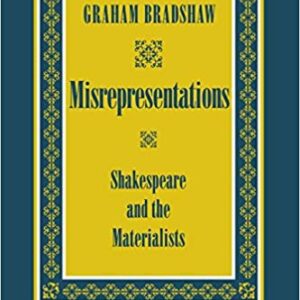
By Graham Bradshaw (NHC Fellow, 1989–90) Just at the moment when conflicts between critical "isms" are threatening to turn the study of English literature into a game park for endangered texts, Graham Bradshaw arrives with a work of liberating wit and insight. His subject is double: the Shakespeare he reads and the Shakespeare that critics … Continued

Edited by Elizabeth C. Mansfield (NHC Fellow, 2008–09) and Kelly Malone A moment in history when verbal satire, caricature, and comic performance exerted unprecedented influence on society, the Enlightenment sustained a complex, though now practically invisible, culture of visual humor. In Seeing satire in the eighteenth century contributors recapture the unique energy of comic images in the … Continued
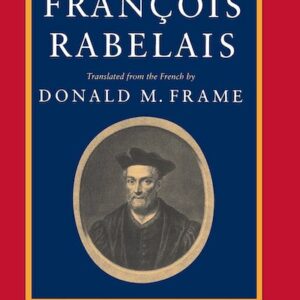
By François RabelaisTranslated by Donald M. Frame (NHC Fellow, 1982–83) Rip-roaring and rib-tickling, François Rabelais's irreverent story of the giant Gargantua, his giant son Pantagruel, and their companion Panurge is a classic of the written word. This complete translation by Donald Frame, helpfully annotated for the nonspecialist, is a masterpiece in its own right, bringing … Continued
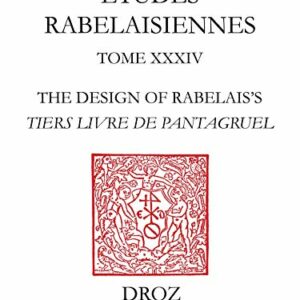
By Edwin M. Duval (NHC Fellow, 1992–93) By analyzing the “design” of the Third Book – its formal composition as well as its underlying intention – E. Duval brings out the deep coherence of a work that is most often passed for ambiguous and “Menippean”. This coherence, which manifests itself simultaneously at two levels (that of … Continued

By Lance Bertelsen (NHC Fellow, 1983–84) The Nonsense Club was a group of five friends and writers–Charles Churchill, Bonnell Thornton, George Colman, William Cowper, and Robert Lloyd–who wrote and edited numerous periodicals, produced a distinctive and often brilliant satirical poetry, engaged in virulent theatrical and literary battles, and participated in the most important domestic political … Continued